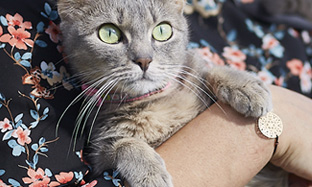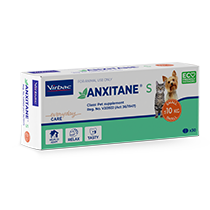
Is your cat less emotional than usual?
2 to 8% * of cats seen in vet consultations are victims of urinary disorders. Often recurrent and sometimes serious, these disorders, described as disorders or the lower urinary tract, require medical care complemented by appropriate food management.
The urinary health of your cat is fragile; this species is predisposed to different diseases and especially the formation of urinary calculi (or urolithiasis). These stones, as they grow, can clog the urethra (the channel through which urine leaves the bladder) and interfere with, or even prevent, the evacuation of urine. Felines are also subject to the appearance cystitis said to be idiopathic, as there is no known cause.
Difficulty urinating, painful urination, depression and a loss of appetite, presence of blood in the urine, urinary dirt are signs of appeal
Stones and cystitis are two major components of the lower urinary tract complex, a term used to describe all the disorders affecting the bladder and the urethra.
The origin of these syndromes is often multifactorial and can involve a behavioural dimension. Male, sterilized, overweight, sedentary, aged or stressed cats are predisposed.
To limit the risk of recurrence, nutrition must be adapted. One certainty is the incidence of the food factor, both in the origin of these diseases but also in their management. After the medical treatment of crisis, it will be necessary to give an adapted food to your pet.
Anything that can help reduce urinary concentration is favourable for urinary health. The vet will be able to recommend switching to a diet that promotes drinking.
Some dietary foods, such as the three U1 ND, U2 ND and U3 ND references in the Virbac Veterinary HPM cat diet range, have been formulated specifically to prevent the formation of certain crystals in the cat’s bladder.
Their protein content has been studied and they are precisely measured in essential fatty acids, minerals and fibres.
The protein requirement of cats is indeed increased during urinary disorders and a high level of protein has the advantage of stimulating drinking and naturally acidifying urine, which contributes to prevent the appearance of urinary stones.
* Hill PB et al. Survey of the prevalence, diagnosis and treatment of dermatological conditions in small animals in general practice. Vet Rec. 2006


